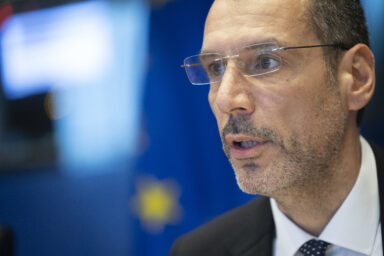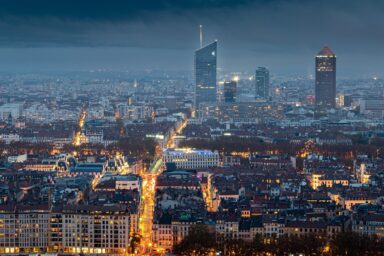The EU will have to invest immense sums of money in order to secure transition towards green energy, MEP Ondřej Krutílek (ECR/CZE) says. In his opinion, hydrogen has an enormous potential in transport and Commission makes a mistake by focusing solely on e-mobility.
How do you assess the EU’s readiness for the ongoing transition to renewable energy sources from the perspective of energy network stability? Where are the weakest points of the European energy system?
Until now, EU policy has been one-sided. That means focused on renewable sources, forgetting that the sun does not always shine and the wind does not always blow. For these reasons we also need backup sources based on gas or other “dirty” substances, as massive battery storage facilities are not available at the moment. Nuclear power, for example, is a stable low-carbon source, but it is being overlooked. This must change and it must be put on equal ground. In this context, it is good that Czechia—my home country—has succesfully completed the nuclear tender.
However, the biggest problem in my eyes is that investment in energy networks has been neglected throughout the EU. We will have to invest immense sums of money in the coming years. These investments are absolutely necessary—not just to ensure stability of the system, but also to strengthen EU’s energy security.
You might be interested
Let us not sideline hydrogen
How do you assess the recently approved delegated act on the methodology for low-carbon hydrogen? Do you think that the so-called green hydrogen could be a realistic alternative to e-mobility? In your opinion, what are the main obstacles to the wider use of hydrogen as a fuel?
The European Commission speaks a lot about promoting hydrogen, but at the same time, both delegated acts are hindering its development. That is a bad news. There are uneven rules for the use of low-carbon sources, nuclear power is not being considered. That is why I tried to get the delegated act rejected in the European Parliament and returned to the Commission for revision. Unfortunately I did not succeed to secure majority support for this.
In my opinion, hydrogen has an enormous potential in transport. We are pushing Commission to respect the principle of technological neutrality in this regard, but so far, everything has been focused solely on e-mobility. However, this is related to the overall approach to hydrogen. It would be reasonable to start using it at this point, regardless of the ’color’ or production technology. It is also the question of availability of appropriate technology, etc.
Do you think it is realistic to completely abolish or significantly postpone the ETS2 system, as some of your colleagues have suggested? If not, what changes would you personally be satisfied with? And how to implement such changes?
I think that what the Czech government has achieved is a great success. It brought together eighteen countries to support the initiative to cap the price of allowances at a reasonable level. And Commission has listened to it and specific measures are unde rpreparation now. It also pushed through a one-year postponement of the start of ETS2.
This is important mainly because a revision of the ETS Directive is planned for next year. This revision will allow for further systemic corrections, including even more effective capping and more effective assistance for decarbonization measures that will reduce the risk of negative impacts on citizens and businesses.











